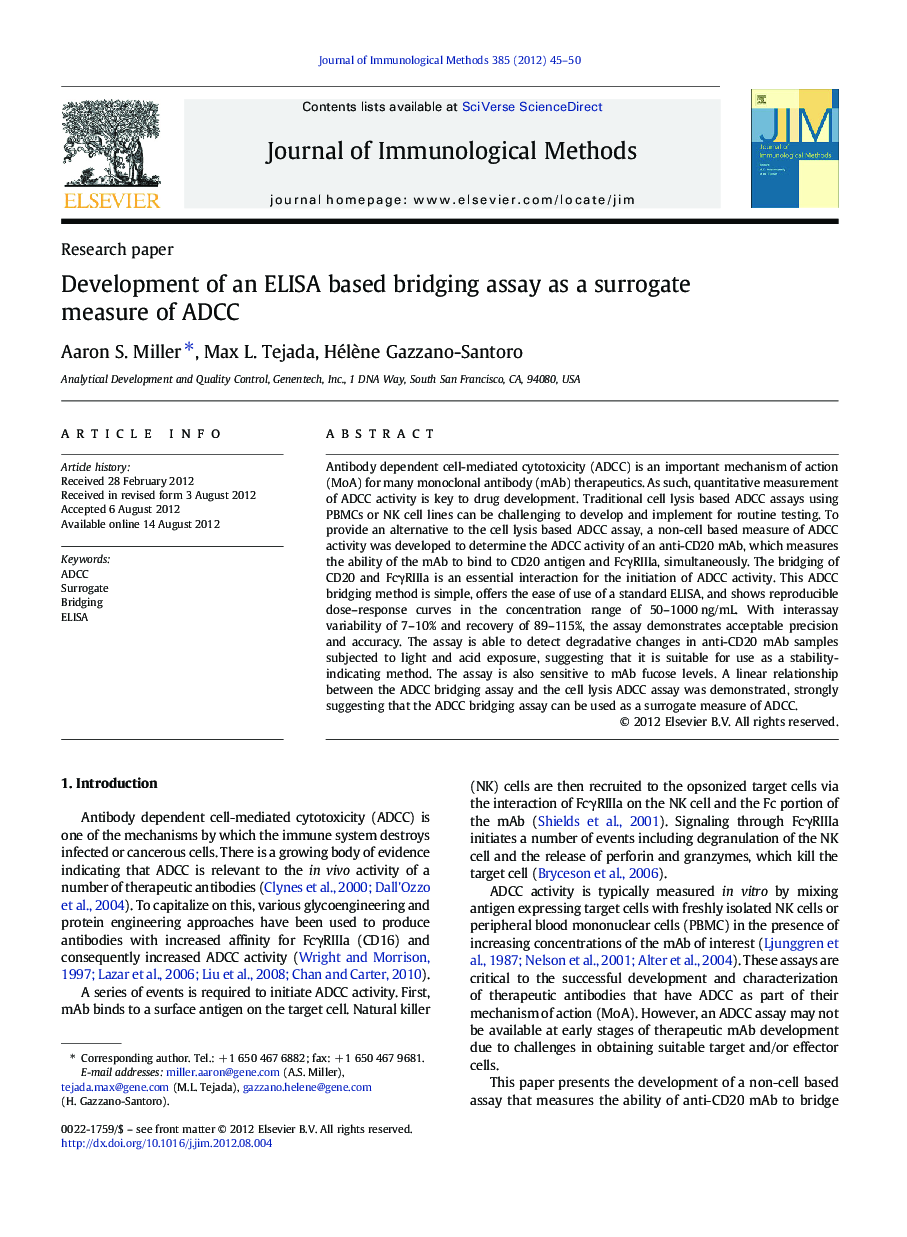| Article ID | Journal | Published Year | Pages | File Type |
|---|---|---|---|---|
| 2088366 | Journal of Immunological Methods | 2012 | 6 Pages |
Antibody dependent cell-mediated cytotoxicity (ADCC) is an important mechanism of action (MoA) for many monoclonal antibody (mAb) therapeutics. As such, quantitative measurement of ADCC activity is key to drug development. Traditional cell lysis based ADCC assays using PBMCs or NK cell lines can be challenging to develop and implement for routine testing. To provide an alternative to the cell lysis based ADCC assay, a non-cell based measure of ADCC activity was developed to determine the ADCC activity of an anti-CD20 mAb, which measures the ability of the mAb to bind to CD20 antigen and FcγRIIIa, simultaneously. The bridging of CD20 and FcγRIIIa is an essential interaction for the initiation of ADCC activity. This ADCC bridging method is simple, offers the ease of use of a standard ELISA, and shows reproducible dose–response curves in the concentration range of 50–1000 ng/mL. With interassay variability of 7–10% and recovery of 89–115%, the assay demonstrates acceptable precision and accuracy. The assay is able to detect degradative changes in anti-CD20 mAb samples subjected to light and acid exposure, suggesting that it is suitable for use as a stability-indicating method. The assay is also sensitive to mAb fucose levels. A linear relationship between the ADCC bridging assay and the cell lysis ADCC assay was demonstrated, strongly suggesting that the ADCC bridging assay can be used as a surrogate measure of ADCC.
